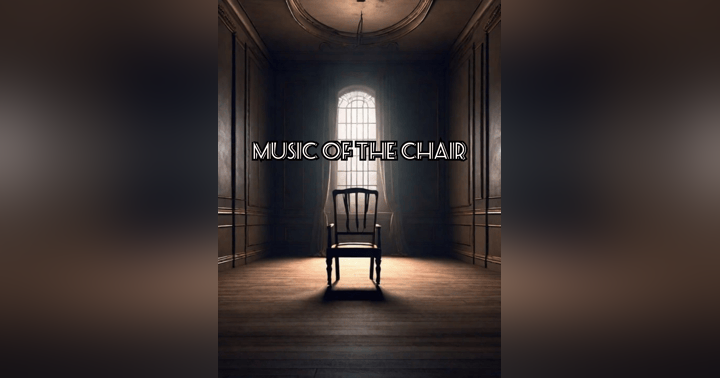Drop the Review on Charlie

When we think of Charles Manson, we think of a murderous, criminally insane cult leader as well as various other pejorative terms. I, personally, think of a comedic, entertaining psychopath deranged by the traumas of MK-Ultra. I think of a clownish demonic showman, performing a sitcom-esque horror of insanity and incoherence mixed with moments of wit and deep wisdom for his audience--always for his audience. His interviews have dredged up many great quotes from Charlie's maelstrom of consciousness.
When asked his opinion on pornography, Manson stated, "I been looking at it all my life and it hasn't affected me anything".... Well ... how do you argue that logic? One head-scratcher unleashed upon the world in a 1994 CNN interview occurred when Manson looked up to the ceiling shouting, "Well, God, I guess you're my best friend, seeing as I created you". I suppose there's some room for analysis and debate in that little gem somewhere. A couple profound statements given to us via the bloody, raving, forked tongue of Manson were, "Look down at me and you see a fool. Look up at me and you see a god. Look straight at me and you see yourself", as well as this thought-provoking Zen-like nugget, "The way out of a room is not through the door. Just don't want out. And you're free". Throughout his many decades in prison, Manson would maintain his freedom in that it is a mental construct. "Prison is a frame of thought. We're all our own prisons. We're each our own wardens and we do our own time." Even a maniac can present something worth pondering from time to time.
Manson was a strange medley of babbling lunacy, aimless ranting, as well as fascinating insights into the dark extremes of human psychology. The murderer, the mayhem-maestro, the drug-addled, cult-crazed rabid animal is what is brought to the forefront of the average imagination when his name is uttered. However, nobody thinks of the musician. Yes, even Charlie had his soft, sensitive side of musical expression.
Released in 2003, recorded on September 11, 1967, of all dates, was Charles Manson's album entitled 'All The Way Alive'. This title, interestingly enough, abbreviates to ATWA, which was Manson's supposed organization designed to save the earth from its polluting inhabitants. ATWA stood for Air, Trees, Water, and Animals. Although I cannot claim to be a fan of Charlie's work, I feel that even a monster deserves a fair trial just as any art deserves a fair critique.
I will not be comparing this album to Charles Manson's earlier albums, especially 'Lie: The Love and Terror Cult', released in 1970, which was much more polished by the addition of backup singers and instrumentalists, including Bobby Beausoleil on lead guitar helping to break up the monotonous, over-repetitive rhythms of Charlie's goldfish bowl of creativity, swimming circles, round and round endlessly to nowhere. It is this repeating, simplistic tone throughout, along with Charlie's outdrawn suspension of vocals sustaining a note without change or even vibrato for extended periods at every punctuation that leaves me suspecting he is using hypnosis techniques, drawing suggestible listeners into trance. This suspicion is not without substance as the actor, Danny Trejo, who once spent time in prison with Manson, has informally testified to the fact that Manson had knowledge of how to perform hypnosis, even hypnotizing he as well as other inmates into believing they were getting high despite the absence of any mind-altering substance. Who taught Charlie these techniques?... I can think only of a three-letter answer.
'All The Way Alive' is a very rough and raw recording completely devoid of frills, artistic direction, production value, or even completed composition. This is only Charlie and his guitar, which makes it a very intriguing piece to study if only as a turnstile entry into his inner workings. Oddly enough, however, the best thing going for this album is that it was written and performed solo by a world-famous convicted serial killer ... well, killer by psychological influence at least. The one thing that kept me tuned in was the Manson-isms spoken in between songs. For me, those were the hits.
Disclaimer:
I do not advise anyone who is highly suggestible to hypnosis or any such psychological influence to listen to any Charles Manson songs. I cannot be certain of the effects these songs may have on such an individual and, therefore, please consider oneself warned.
The first song is very appropriately titled 'Devil Man'. A very hectic, anxiety-fueled, over-repeating 4-bar rhythm continues into an unguided madness where we are introduced to the overall pattern of the entirety of the album. His guitar skills seem on par with a child in his first month's lesson taught by a drunkard's version of Richie Havens. After the more than unfulfilling conclusion of this song, Manson makes the comment, "Can you imagine, if there were no laws, there would be no laws to be out from. There would be no outlaws". This he follows with a lunatic's cackle. Apparently, he is an outlaw when it comes to musical structure as well, for this song, as well as many that follow, are want of the rule of mathematical harmony and the engineered formatting of verse and chorus that so eludes Manson.
"Make up your mind. Don't let your mind make you up," Charlie states mischievously before the next song, which it becomes immediately apparent that he has, indeed, made up his mind to play the same repeating rhythm again and again like a schizophrenic tick, banging the listener's head against the white padded walls of his psyche. The song is called 'The More You Love' yet it soon devolves into the strange, confused chanting of "The sound of one hand clapping", which, of course, is a riddle taken from traditional Buddhist teaching and in no way fits the theme of the song nor does it warrant a continuous repeating. Again, the repetition seems to be as much a hypnotic technique as it is the result of Charlie's uninventive style, consistently losing the plot yet ever-fearful of straying from the home note--like a caged rhythm pacing its prison cell without enough imagination or focus to facilitate escape.
'Two Pairs of Shoes' continues in this very same box under strict lock and key, like a child given only a bouncy ball to play with in a very confined yard and instructed to bounce it only against one wall and never in any increased complexity of game. His songs are fearful of wandering and yet still consistently become lost. It isn't until 'Swamp Girl' that we hear a deviation from the compulsion of psych ward patient obsessively rocking back and forth in predictable patterns of confusion. The guitar no longer sounds as fumbling and incompetent. There is actually a song here. Although it is as an unfurnished apartment, it is move-in ready with potential to one of a decorative sense.
It draws one into a 1950's romance film set in the gusty streets of Paris with hazy moonlight through a pale blue fog sweeping the empty, untrodden cobblestone. Now that I hear something with any kind of stable skeletal structure whatsoever, I can reflect on one quality the other songs actually possess (Dare I use the word "possess" when talking about such a Satanist?). Surprisingly, Manson could sing rather well. In fact, I would find it completely plausible if someone were to explain to me that Tool's lead singer, Maynard James Keenan, was, in fact, influenced by the vocals of a young Charles Manson, although Keenan certainly took it to a completely different level, utilizing transitions that Manson's mind could not seem to fathom.
Manson composed his music the same as he composed his media ramblings--a tidbit of intelligence that gives you an inkling of something of substance actually being conveyed. However, it always merges into oncoming traffic and becomes a blathering pile-up of disharmonic pandemonium, screeching, honking, crashing, sirens alarming, and screams all out of time. This is the case for 'Bet You Think I Care', which begins as a playful jaunt with potential to stroll casually into enjoyable sing-along, yet never finds its way.
Manson in dialogue with the audio technician says, "If someone beats you with a whip and you love the whip, what's he doing? He's makin' a fool out of himself". Anyone who enjoys this album is, in fact, he who loves the whip. It is pure torture for anyone who understands, even at the most fundamental level, the most basic technicalities of song. It is an auditory whip thrashed against the desires of the mind's musical needs, enslaving it to the repetition of a lunatic's habitual madness.
'Who to Blame' begins very strong lyrically and I much enjoy the opening verse. "Your cardboard houses and your tin can cars. You sit and you wonder ... you wonder who you are. Your diamond rings, they all look the same. You sit and you wonder, you wonder who to blame ... who to blame. You're in the frame now." A strong opening and the artist in me hears exactly where this can be taken to produce a tried and true song with mass appeal. Yet this is the issue with Manson's music--it is left for those who recognize a foundation to complete the framework and the beautification of an absent edifice known only in scribbled blueprints drawn hastily in crayon.
One of my favorite Manson-isms is, "I was so smart when I was a kid that I learnt that I was dumb". Neither Socrates, Plato, nor Einstein, themselves, may deny the intelligence in such a simplified statement. One may be puzzled to learn that Charles Manson had an I.Q. of 121. While this is not genius, it certainly does not indicate any lack of intelligence and, instead, validates Manson's mental capabilities. This I.Q. he achieved despite great difficulty in reading and writing. One need only read his letter to Marilyn Manson after his cover of Charlie's 'Sick City' to recognize Charlie as nearly illiterate.
At age 16, he tested an unimpressive I.Q. of 109. Just a few years later it soars. What accounts for this? Charles Manson did state that he had been dead since 1951. This year coincides with that increase in intelligence. Perhaps this was the moment of C.I.A. intervention and L.S.D-induced programming that he later used on the family. Either way, he cited this as the year of his death. Here was his arrested development as well. Here is where his music could grow no higher, reach no further, explore no broader.
All in all, 'All The Way Alive', in my opinion, barely has a pulse. It is on life support and hanging on by a faint breath and an erratic heartbeat. There were songs that I did not address, although it is unnecessary, as they are crudely recycled from the previous garbage pits of so-called song. It may be psychosomatic, but too much of this album left me feeling a wild, jungle sickness to my core and somehow fatigued at subconscious. I ended up with an earworm that sings in muzzled gibberish. I could not make out the tune nor the lyrics. This was enough to nearly drive me insane, although I treated myself with a brain flush of various other catchy songs, drowning the earworm in actual song structure and healing harmonics. I do not recommend listening to this album for your psychological safety and, therefore, I give 'All The Way Alive' two severed thumbs down as far as they may be buried. 'All The Way Alive' is now all the way dead to me.
When asked by Tom Snyder if he's scared to die, Charles Manson answered, "Sometimes I feel I'm a'scared to live. Living is what scares me. Dying is easy".






